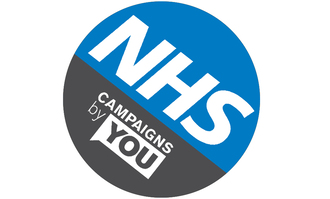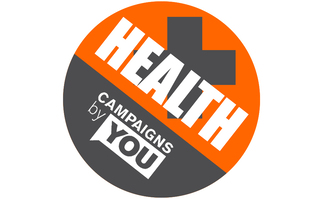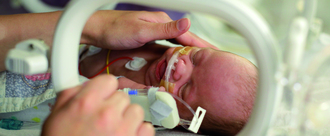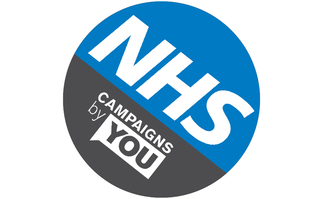-
Pay rise for NHSWe deserve it we put our lives on the line and family at ridk170 of 200 SignaturesCreated by Barbara Wynn
-
Conduct a rapid review and change of death certification to include a field for ethnicityThe petition is framed within the following context: 1. The modifications to the death registration process made as part of the Coronavirus Act 2020 (https://nafd.org.uk/wp-content/uploads/2020/03/GROCircular-5-2020.pdf); 2. Written statement by the Welsh Government 21 April 2020 on the subject of COVID19 and Black and Minority Ethnic (BME) Communities, presented by Vaughan Gething, Minister for Health and Social Services (https://gov.wales/written-statement-covid-19-and-bame-communities); 3. The rising alarm in the UK (and beyond) on the impact COVID19 is having on minoritised populations, including those living in Wales (https://www.newscientist.com/article/2241278-an-unequal-society-means-covid-19-is-hitting-ethnic-minorities-harder/ ); 4. The significant numbers of people from minoritised backgrounds working in the health (7) and social care sectors (https://nafd.org.uk/wp-content/uploads/2020/03/GROCircular-5-2020.pdf ; 5. The revelation that some Welsh health boards have a higher representation of employees from BME backgrounds than in the local population, with one example being that in Hywel Dda LHB, 6.8% of the workforce are from BME backgrounds, compared with 2.7% of the local population (https://seneddresearch.blog/2020/04/15/coronavirus-equality-issues ); 6. Calls made by the British Medical Council (https://www.theguardian.com/world/2020/apr/18/failure-to-record-ethnicity-of-covid-19-victims-a-scandal-says-bma-chief ) and by a specialist medical group in Wales (https://www.bbc.co.uk/news/uk-wales-52347003) to find ways to safeguard NHS staff from BME backgrounds who may be at risk due to a number of recognised (genetic, socio-economic, as well as systemic intersecting oppression) and perhaps unknown reasons; and lastly 7. Current call for an Independent Public Inquiry into the impact of COVID19 on people from BME backgrounds (https://you.38degrees.org.uk/petitions/bame-communities-and-the-disproportionate-incidence-of-covid-19?share=c1c370db-dc62-460e-a89c-e3576037c4e9&source=rawlink&utm_source=rawlink). The inclusion of an ethnicity category on death certificates such like that which is in place in Scotland is required urgently in Wales and England. Importantly, this change should be a mandatory undertaking and considered a care quality and safeguarding requirement. In keeping with the lessons to be drawn from an analysis of the collecting of ethnicity data on death certificates recently conducted in Scotland ( https://www.nrscotland.gov.uk/files//statistics/vital-events/ethnicity-of-deceased/ethnicity-deceased-report.pdf ), the introduction of an enhanced death registration process will need to be underpinned by training, incentives and ongoing monitoring. In the future we must be in a position to be able to identity and meaningful use existing national data collections to address health and social inequalities impacting on the lives of people from BME backgrounds. Securing a change in death certification is one important action. Keeping in mind all of those who have sadly died, all those affected by this crisis, and all those campaigning for change in across the UK, we urge all members of the public to sign this petition. There is no geographical restriction on who can sign a petition. About us: The ‘We Are One’ Collective: Under the slogan of ‘Pulling together to protect our families, our elders and our futures,’ we are a group of anti-racism activists, concerned citizens, and academics who came together in 2018 to address the Windrush Scandal and its impact on Wales’ Caribbean Commonwealth Elders. Our connections spread across Wales and beyond.423 of 500 SignaturesCreated by Roiyah Saltus
-
Zero tolerance for the spread of Covid19!Our leaders need to see a strong message that we want a zero tolerance approach to Covid19. I am an NHS GP who sees first hand the damage to patients, colleagues and our economy. I feel strongly we must work harder to protect the general public, healthcare workers and vulnerable patients, who remain extremely exposed. The infection is indiscriminate with unacceptable death rates in all ages and ethnic groups. Every life is precious and this level of risk is unacceptable for people in the modern world. Good protective equipment combined with isolating cases and contacts can keep control. We can ease lockdown with appropriate social distancing and home working depending on evidence of control being maintained. We would then avoid a second wave. There are other benefits from reductions in many other contagious diseases particularly in children. This buys time saving thousands of lives and allowing more business activity while we research treatments and vaccines. Control is successful in other countries that act with zero tolerance. Please sign this petition to show our leaders that we feel strongly that the best way we can protect everyone from this deadly infection is zero tolerance to Covid19!202 of 300 SignaturesCreated by Jeremy Baily Gibson
-
Support parents to be with their babies during COVID-19Every day, 300 babies are admitted to neonatal care either because they were born premature or because they were born full-term but sick. Some of these babies will need life-saving care for weeks and sadly, some will never make it home at all. When parents can provide hands-on care, babies have the very best long-term developmental outcomes and parents’ wellbeing is also improved. But because of COVID-19, parents’ ability to be with their babies in neonatal care is being limited by changes to access onto neonatal units and the effects of the lockdown. The emotional toll of this on families is huge. One father who is no longer allowed to see his baby told us: ‘I feel like I’ve had a bit of my heart taken out’. A mother who is seeing her baby on alternative days so her partner can also be with him said: ‘It’s hard leaving your son at all, never mind not being able to go up when you want to see him. And I’ve got the underlying worry on top of all that about whether he’s going to have any long-term health problems.’ Current Parental Leave policies are already not fit for purpose for parents with a baby in neonatal care. Bliss was delighted when the UK Government announced they would introduce Neonatal Leave and Pay. But this won’t be available until 2023.Many parents have been furloughed on 80% pay, and self-employed parents will have to wait until June for Government help towards their loss of income. The UK Government must introduce a version of Neonatal Leave and Pay now to support parents in this unprecedented situation – and ensure it covers those who are self-employed or in insecure work. Previous research by Bliss found that the average cost of having a baby on a neonatal unit was £282 per week – due to daily travel, parking food and drink at the hospital, accommodation and childcare for older children. These costs are even more difficult to manage during COVID-19. Parents without a car are being asked to avoid public transport, making them reliant on costly taxis or on lifts. Many food establishments at hospitals have closed, limiting choices and parent accommodation is increasingly unavailable on hospital sites due to infection control reasons. Nationally coordinated funds, and access to free parking at NHS sites, are essential to enable parents to be with their baby at this time. Having a baby in neonatal care is a traumatic experience at any time, but, for many parents, their anxiety and stress is heightened because of the COVID-19 pandemic. To minimise the spread of the virus, neonatal units across the UK have made difficult decisions to restrict who can come onto the unit – with most now only allowing one parent onto a neonatal unit at a time. Understandably, parents suspected to have COVID-19 are not allowed onto neonatal units at all, leading them to be separated from their baby for up to two weeks. To prevent prolonged unnecessary separation, parents of babies in neonatal care should be prioritised for rapid testing if they are suspected to have COVID-19.5,505 of 6,000 SignaturesCreated by Bliss The Neonatal Charity

-
No more workplace coronavirus deathsAs the coronavirus pandemic sweeps across the UK, essential workers like medical staff and supermarket workers are both saving lives and keeping our country going. The government with the HSE should come up with a comprehensive plan to keep all workplaces in the UK safe from Covid-19 and set an official target that no more workers should die from catching Covid-19 at work.149 of 200 SignaturesCreated by Nick Pahl

-
Stop covid 19 spread prison to prisonI have a relative in prison and Im also doing this to help other prisoners, staff members, family members and delivery drivers who deliver parcels, food etc.141 of 200 SignaturesCreated by Emma Taylor
-
Lump sum payment for key workersThe Country claps to show our appreciation for Carers across the Country every Thursday at 8pm. Now lets show our appreciation to ALL our Carers by helping them financially. We can do this by petitioning Government to provide them all with a lump sum bonus.244 of 300 SignaturesCreated by Lynn Pallister
-
PPE for all NHS & Social Care Staff - via EUOn 13th April 2020 Guardian journalists discovered that the UK government have missed 3 chances to join a €1.5 billion EU scheme to buy PPE (personal protective equipment) to protect health and social care staff working against coronavirus. Medical unions in the UK are currently warning that stocks of protective gowns are critically low. On 12th April the Royal College of Surgeons found one in three surgeons in the UK lack enough protective kit. On 11th April the British Medical Association warned that NHS staff are risking their lives because they still don't have proper protective kit. And the UK Royal College of Nursing currently has fears that nurses may not be able to work due to lack of PPE. This is putting medics in the impossible ethical position of having to choose between the care of their patients, and their own lives. And if more health and social care staff start to die this leaves fewer skilled people to care for those who are sick. Evidence from the frontline is clear that whatever our government is currently doing is not providing the NHS with enough protective kit for all staff who need this. This is clearly too big, and too urgent, for the UK to go alone. Please join me, as an NHS medic, in supporting this petition to ask our government to consider the will of the British people in deciding whether to join the EU PPE procurement plans, which we still can - to protect our healthcare workers, so that they can keep working to protect us all.427 of 500 SignaturesCreated by Sara Ritchie
-
Honour NHS Staff's SacrificeThe NHS and care staff are putting themselves at the greatest risk and losing their lives to protect and save others who have fallen victim to the virus. They are now dying and this is having an increasingly demoralising effect on the staff when they are all scared and worried about their safety. We must honour and respect everyone who has fallen victim to this unprecedented global pandemic and we must put the humanity back into the statistics we are being given. We ask you as our Health leaders to avoid hiding information from us for the fear of scaring us. I'm a nurse and together with my colleagues we think about our risk every day. Losing a colleague will be absolutely devastating to us on the front line as it is to all our colleagues who have already lost their friends. Reading out their names is a very small step that has huge humanistic benefits for us in the health care sector and the whole population at this grave and dangerous time for us all. I also call on the government to call for a weekly minute silence for all the victims each Thursday evening alongside the positive expression of gratitude that is currently occurring.172 of 200 SignaturesCreated by Andrew Spink
-
Pay our nurses what they deserveBecause they are overworked ,undervalued and they are our key brave frontline careers123 of 200 SignaturesCreated by Jeremy Kabia
-
Supply Personal Protective Equipment (PPE) To Key Workers in Dudley.The whole of the Country are behind our health and social care workers and we believe that the front line staff should have access to adequate PPE to perform their roles with the highest level of protection.294 of 300 SignaturesCreated by Rebecca Dupree
-
Help ManorlandsMANORLANDS is facing closure within months due to a funding crisis. Sue Ryder, which runs the Oxenhope hospice, says income has dried-up because of the coronavirus pandemic. The charity, which relies on public donations to maintain its services, has had to close its shops and cancel fundraising events. Now, with a potential funding gap of £12 million over the next three months, Sue Ryder is warning that without immediate financial support it will be forced to shut its hospices and stop providing its other end-of-life services. “During this particular period it should be providing 100 per cent funding – and then looking to the future, covering at least half the running costs of our hospices.”6,398 of 7,000 SignaturesCreated by Clair Parker
Hello! We use cookies to improve your experience by providing insights into how the site is being used. Find out more.
.jpg20200504-23724-a9teun.jpg)








.jpg20200409-11361-13ngyen.jpg)


